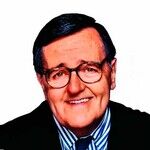I read the Gettysburg Address from time to time and not always on the anniversary of its delivery. I read it like I read Jack Kerouac or Ernest Dowson's poetry or Winston Churchill's speeches. I read it because I'm a writer and a writer should, as often as possible, read words that are better than his own.
It's an interesting speech. It does not contain the word "America." Not once. It does not contain the word "hero." Not once. It does not promise that "our side" will win the Civil War. It makes one reference to God, but does not identify God as being Christ. It calls for additional sacrifice. It is not a speech of triumph. It is a sad speech of mourning. It recognizes that humans do not have the power to consecrate, to dedicate, to hallow. It is a speech made by a man standing knee deep in the dead and crying; it is stark elegance in the face of stark horror.
And if Lincoln, stovepipe hat and all, clambered up on some rocky outcrop in Afghanistan and spoke over the dead, how much of this speech could he use?
Clearly he could speak in a cadence of mourning because death remains the same from age to age, but what could he say of purpose?
Could he say that the dead in Afghanistan died so our government would not "perish from the earth?" Could he say that the dead in dusty Afghanistan died so that our nation "might live"?
Could he say our dead in those dusty Afghan valleys have not died in vain, as he said of those blue-clad soldiers whose bellies were opened by the bayonet?
Lincoln said the Civil War tested if a country dedicated to equality could endure the forces that conspire to keep the bottom packed with people who have always lived on the bottom.
In that sense, he could deliver this speech almost anywhere. Outside a crack house in Akron, Ohio; in the parking lot of any business that pays part-time workers the minimum wage and offers them no benefits; in any place where veterans of our colonial wars starve and shiver under a highway overpass.
All great writing and speech is a drop-by-drop distillation of some quality. Churchill's speeches are about hard, prideful endurance. Kerouac's books are about whopping freedom and its price. Dowson's poetry is about the inability to sustain love.
Lincoln's words, then, are the bitter distillation of loss in the service of justice. They are measured, nearly grudged words, a choked-out insistence that the heaps of crushed and slashed bodies are worth it if their death preserves honor and justice, if their deaths keep a promise.
Lincoln doesn't once mention which side won at Gettysburg. There is no "Mission Accomplished" crowing in this short speech.
Measure all wars by the standards of the Gettysburg Address; measure all calls to death by what the deaths will protect.
If you do that, you cannot make a speech that isn't true.
To find out more about Marc Munroe Dion and read features by other Creators Syndicate writers and cartoonists, visit www.creators.com






View Comments